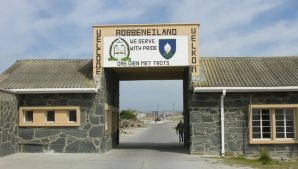Parallels between stigma and isolation during the COVID-19 pandemic were under the spotlight during the 5th annual Robben Island Memorial Lecture in Cape Town on Sunday.
Leprosy was one of the diseases that were highlighted as the most devastating to mankind. The world’s famous island was once a leper colony, where those with the disease were banished to.
The museum has honoured the history and heritage of the patients who were exiled to the island.
Best known as the former prison which housed some of South Africa’s most iconic freedom fighters. The island, however, also has a multi-layered medical history of banishment, exile and stigma. It was, for many decades, a place to which society’s outcasts were banished.
Among these are patients who suffered from mental health issues and leprosy. The stigma around chronic skin disease dates back to ancient times, and throughout the course of history, those affected were ostracised.
The museum says, similarly to the recent COVID-19 pandemic, education is key to creating an inclusive and equal society.
The Chairperson of the Robben Island Museum Council Professor Saths Cooper says the youth needs to be taken care of and supported in every way so that they do not face the same challenges of the past.
“We should be looking forward and what we are not doing is helping our children, our young people who constitute the vast majority of our population to overcome the difficulties that not only Covid but decades of neglect have created in our society. We need to invest in them so that they don’t confront the things that we confronted in the past. COVID-19, racism, apartheid, leprosy any tendency to make people feel they are inferior,” Cooper explains.
5th annual Robben Island Memorial Lecture I Stigma and isolation under the spotlight
Medical students attending the lecture also weighed in on the importance of education and awareness in order to break stigmas that come with the lack of knowledge or understanding.
Caitlin Sithole, who is a medical student, says the most important thing is education. Sithole says a better understanding of a pandemic makes it much easier to deal with it.
“I think breaking stigma starts with education. I think the stigma is based on uncertainty and not knowing, it starts with educating somebody so that they know more and they realise that something that they thought was one thing, ostracised does not have to be that way. Something as simple as leprosy, it’s not contagious in the same way we thought it was so it’s taking that education and leading it to something else, making people realise that our stigma is not founded in something and it is only when we break that barrier will we be able to move away from ostracising people,” explains Sithole.
Another medical student, Sibande Mbano says the medical field does more than just treat diseases that have been discovered.
“I think it’s quite important to note that the rebranding of COVID-19 or any pandemic or disease that affects humanity negatively, medical intervention begins far before the general populace becomes aware of it. It comes from people themselves that decide to take on the task of trying to get information on this so we can try to prevent tragedy, which is the goal of the medical profession. Its influence and the work that is done span far beyond the treatment that society is aware of. We continue to research, developing other drugs or other methods of not only treatment but also prevention,” Mbano details.
Robben Island Museum says it’s committed to working against stigmatisation and ostracisation of any person or people in society.






